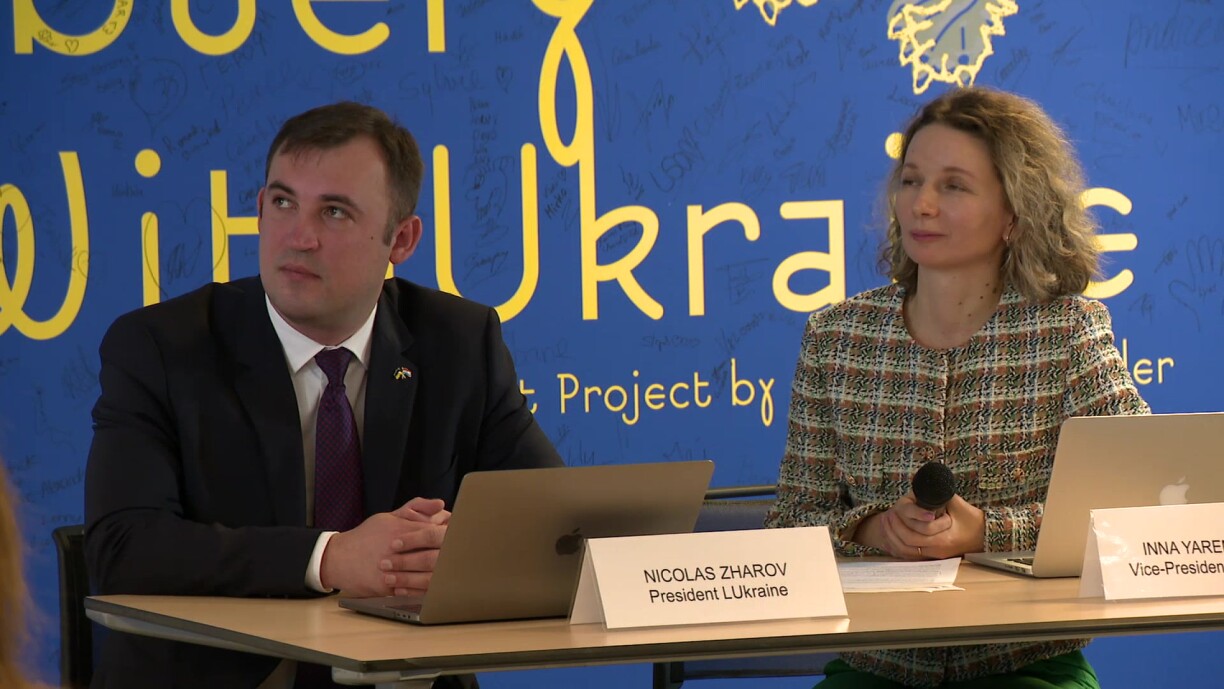
The Luxembourg government has “no concrete strategy for the refugees”, argues LUkraine after close to a year of assisting Ukrainians displaced by the war here in the Grand Duchy. The association alleges that the government has not paid sufficient attention to their proposals, most notably those concerning housing, and therefore wants to organise a roundtable talk with humanitarian organisations Caritas and the Red Cross.
As the latter manage refugee shelters in Luxembourg, it is hoped that they can help find a solution. According to LUkraine vice president Inna Yaremenko, the National Reception Office (ONA) and the Ministry of Immigration and Asylum should also join the meeting.
LUkraine believes that infrastructure in the shelters is not suited for families as children have no space to play or study. It is also alleged that there are issues with the security personnel.
“People feel as though they live in a prison”, says Yaremenko.
According to the organisation, people are also not allowed to cook themselves, a decision that refugees find incomprehensible. Furthermore, sanitary installations are said to often be defective and not functioning properly.
Large facilities, such as the ‘T Building’ in Kirchberg, prevent refugees from integrating into society, laments Marianna Pogosova, who is charge of communication with refugees at LUkraine. The shelter in question currently houses about 900 people, out of whom 600 to 700 are Ukrainians.
Thanks to immediate access to refugee status, Ukrainians are allowed to start working right away after arriving in the Grand Duchy, which is not the case for refugees from other countries. However, only about 10% of them managed to find employment, estimates Yaremenko.
The language barrier and administrative issues are at the heart of the problem. According to Yaremenko, some of the close to 5,000 Ukrainians living in Luxembourg are highly skilled and can be of great use to the country. To be noted that this number also includes around 1,500 children.
LUkraine’s vice president expects another country-wide offensive from Russian troops during the one-year anniversary of the invasion: “As we know, Vladimir Putin loves anniversaries.”
Although this might provoke another wave of refugees, she doubts that many will come to Luxembourg due to the living conditions and housing problems. She elaborated that after a year of war, many Ukrainians know what to expect and think carefully about where to go.
About half of Ukrainian refugees in Luxembourg are said to live in shelters while the other half live in private homes. Many would like to return home, women and children separated from their husbands and fathers in particular.
Before this can happen, the war first has to end and Ukraine has to be rebuilt, however. “Entire cities have been destroyed”, explains Pogosova.
Yaremenko acknowledges that Luxembourgers showed a great level of solidarity at the beginning of the war: “We appreciate all this support.” 600 families volunteered to take in refugees. Over the span of the year, LUkraine has collected €2.5 million in donations and about the same value in goods.
According to Yaremenko, it is important that donations keep coming in to eventually help rebuild their home. LUkraine currently planning their own humanitarian mission to the war-torn country and wants to send 112 support vehicles to Ukraine.
The association will also send a bus, adapted into a mobile hospital, along with a medical team of volunteers and paid doctors, to the frontline.
Yaremenko concluded by arguing that Ukraine is fighting for all of Europe and condemning the foreign aggressor: “Russia is a terrorist state practising extortion with energy and food.”